Brexit winners: the 5 best European cities to invest in property
A crop of international cities looks set to see a rise in demand as a result of the EU referendum, finds Carla Passino.
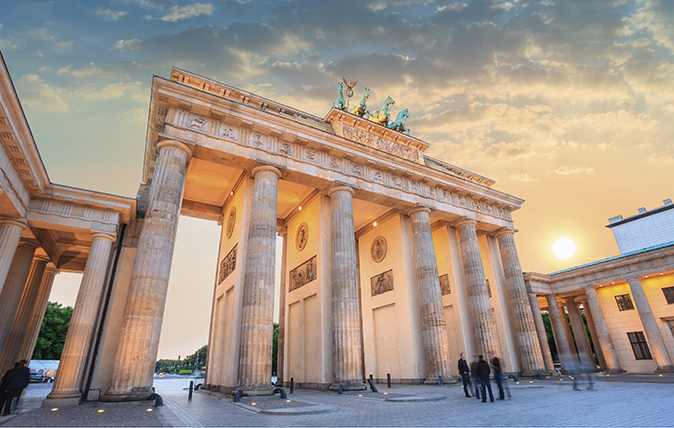

June’s Brexit vote hides a paradox. The UK voted to withdraw from the EU, but a consequence of this choice could be a much closer integration between London and Continental European cities. This, in turn, could inject fresh energy in many international property markets.
‘Our knowledge economy means that the “idea” of London can migrate,’ says Yolande Barnes of Savills. She explains that, although these are early days to tell how business issues such as passporting—essentially, the ability for the City to operate across the entire EU under single-market rules—will be addressed, the signs are that banks and other institutions could move their backroom operations elsewhere. ‘London will remain the centre, but will need other cities to operate in.’ In Miss Barnes’s view, the places that are best positioned to pick up business from London are fluent in English, which is the language of the global workforce, and offer a mix of a favourable business environment and interesting culture.
‘There are “London hubs” all over the UK already—Bristol and Glasgow, for example—and what may happen is that companies will set up outposts in places such as Berlin or Dublin. I think that London and these other cities are going to work a lot more together and become more interlocked.’
The global elite has long been spearheading this integration trend, at least at a personal level—many of them own a portfolio of homes that spans not only countries, but also continents. ‘Ultra-high-net-worth individuals operate across a global cluster, buying property in London alongside Monaco or New York,’ notes Miss Barnes. She believes that, despite concerns of a political backlash against foreign property ownership, they will continue to buy trophy houses in multiple locations in the future.
At the same time, the uncertainty caused by Brexit will undoubtedly trigger a flight to safety, with many investors trying to shelter their capital from market turbulence. The winners in the post-Brexit international property stakes could, therefore, be the destinations that promise stability in times of turmoil, the cosmopolitan cities that can grab the business coat- tails of post-Brexit London and, to a lesser extent, the favourite European haunts that hold enduring appeal for wealthy buyers.
‘With interest rates around most of the world at record lows and unlikely to increase at any moment, the prospects for residential real-estate investment remain strong and we see many markets set for further growth,’ says Matt Goulding, vice president for real-estate securities at CenterSquare Investment Management. ‘It’s just a question of picking the right locations in which to invest.’
BERLIN
Exquisite houses, the beauty of Nature, and how to get the most from your life, straight to your inbox.
Steadfast, dependable, efficient: Germany has been described in many ways, but thrilling isn’t usually one of them. Unless you’re an investor, in which case, thrilling is increasingly the word of choice for the property market in the EU’s largest economy.
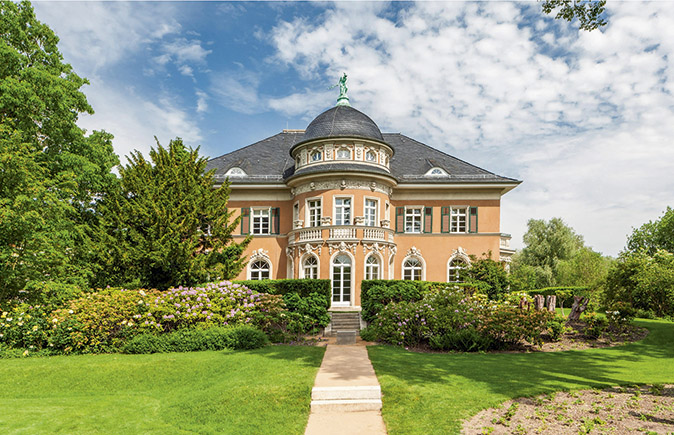
‘With interest rates at record lows, investors have been keen to deploy capital into German residential [property] that has shown strong rental and capital growth—and Brexit could provide it with another boost,’ notes Mr Goulding.
Although the outcome of the EU referendum took the German public opinion by surprise, the country has not wasted any time in trying to entice the British to its shores. Berlin is targeting tech firms and Frankfurt bankers, according to Oliver Blum of John Taylor estate agents in Berlin.
He cautions that it’s too early to see how the future will pan out and certainly doesn’t expect a mass migration: ‘Do we have phones ringing permanently right now in Berlin? No, we don’t. Brexit is probably at least two years away and much depends on how the negotiations between Theresa May and Angela Merkel go.’ However, he continues, ‘the Berlin tech scene is prepared to receive a lot of people and companies. At the moment, the movement is virtual, but, if it happens, it could really push up house prices.’
The local property market is already a very attractive proposition. A far cry from the grey, impoverished city of the early 1990s, Berlin is now a thriving, cosmopolitan capital drawing a young, mobile workforce that’s fuelling demand for both rentals and sales. ‘The current situation could not be better,’ says Sebastian Fischer of Engel & Völkers Berlin. ‘The economy is developing superbly, the city is growing and the market is flourishing as a result.’ Indeed, he believes that today’s Berlin offers the same cocktail of international appeal, investment stability and price growth that previously drew investors to London.
With price growth in the double digits, the city is ‘no longer the cheap Berlin it used to be,’ according to Herr Blum and buyers should be pre- pared to budget at least €700,000 for a 100sq m apartment.
However, all expectations are for further price increases, which should protect capital values. ‘We foresee a lot of growth here for the coming year—more than anywhere else in Germany.’
FRANKFURT
Other German cities such as Munich, Hamburg and Frankfurt could also see a post-Brexit uplift, according to Mr Goulding. Frankfurt, in particular, could stand to benefit if banks eventually decide to relocate part of their operations from London to European financial centres. This would quickly translate into fresh demand for both local offices and housing. ‘We’re seeing individual cases of banks and companies relocating their headquarters from London,’ says Oliver Gripp of Engel & Völkers in Frankfurt. ‘If growing numbers of bankers move here, this could certainly bring about change for the city and the surrounding region.’
With stock short in Frankfurt’s most sought-after locations, buyers are already widening their property search to other areas, both in the city itself and in the countryside beyond. ‘This trend could intensify with the ramifications of Brexit and lead to further price rises for residential property in the entire Frankfurt region,’ according to Herr Gripp. Even the German federal election is unlikely to put the brakes on the property market. ‘We expect to see a Big Coalition like we have now,’ says Mr Blum.
AMSTERDAM
A city of peaceful canals, social liberalism, edgy fashion and tough caps on bankers’ bonuses hardly looks poised to become Europe’s new financial capital, but Amsterdam could take everyone by surprise. The Dutch hub, which combines tradition with innovation, having both one of the world’s oldest stock exchanges and a rock-solid reputation for electronic trading, has subtly been working the market for a bigger slice of some financial operations, such as Euro-denominated clearing.
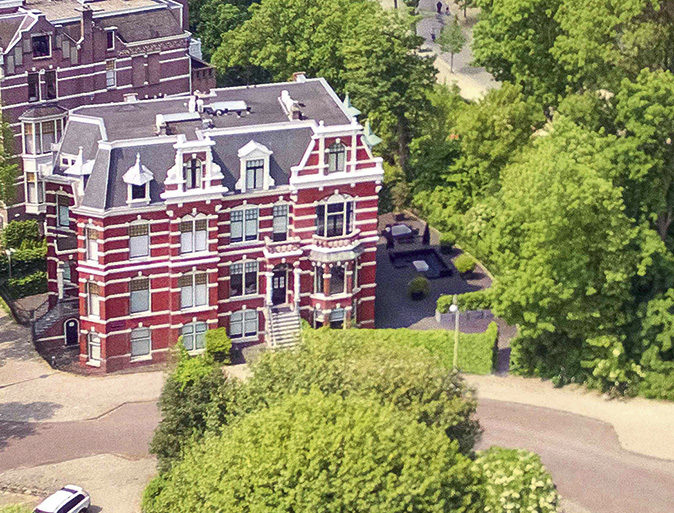
Unlike other European contenders, Amsterdam has a similar atmosphere to that of London, making it particularly attractive to businesses looking for a home in the EU. ‘The city could become a lot bigger, as it has that kind of cultured offering that appeals to companies and their employees,’ says Miss Barnes. ‘Madrid and Paris have it, too, but do they have as favourable a working environment?’
Add to this the fact that nearly everyone in Amsterdam speaks English, that communication links with both the UK and the rest of Europe are excellent and that there’s a good crop of international schools, and it’s easy to see why it could be a great place for businesses to move to—and for property buyers to invest in.
In any case, the local property market is already dynamic. According to a Knight Frank study published in July, the Dutch capital city saw a 10.6% increase in mainstream housing prices between the first quarter of 2015 and the same period in 2016 to become the sixth strongest performer in Europe after Stockholm, Budapest, London, Gothenburg and Bristol.
MONACO
With its ancient Rock perched high above the Mediterranean, the elegant, boutique-studded streets of the Carré d’Or, high levels of personal security, plenty of sunshine, a favourable tax regime and a relaxed lifestyle, it’s hard to think of anything that could make Monaco even more appealing for international buyers, but there is one thing: political stability. At a time of stress, the tiny principality comes across as one of the world’s safest havens. ‘Nothing changes here,’ says Irene Luke of Savills. ‘People don’t like uncertainty and this makes Monaco look more and more attractive.’
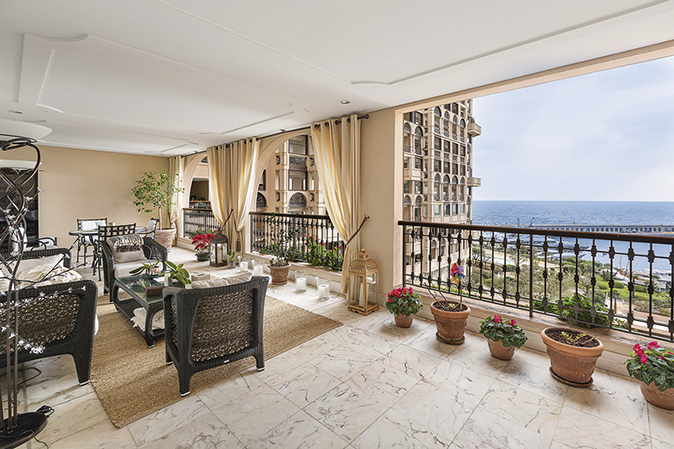
In particular, the joint effect of Brexit, new rules for non-domiciled residents and a higher Stamp Duty burden on higher-priced British properties is persuading growing numbers of people to consider moving to Monaco. Some of these buyers are British, but many are foreigners who currently reside in the UK—Mrs Luke mentions Greek expatriates who work in the shipping business as an example.
Many of those relocating to the Principality are looking for a large family home and an office, but neither of these are in large supply, at least not until the massive land-reclamation process that was signed off at the end of July 2015 comes to fruition in about 10 years.
In the meantime, competition among buyers is set to remain fierce, supporting values. ‘Monaco is a small country and it doesn’t take much to make a wave,’ advises Mrs Luke. ‘I’ve noticed that sellers are becoming quite intransigent on prices because they see there’s demand—recently, we had an offer of €85,000 per square metre that was refused.’
DUBLIN
Small but vibrant, with a rich history and a dynamic economy, Dublin is ideally placed to become part of what Miss Barnes calls ‘a policentric London’ thanks to a combination of clear legal framework, proximity to the UK and—a key advantage—the English mother tongue. Although Brexit sparked huge concerns in Ireland, most notably over the border with Northern Ire- land, the country spotted an opportunity to attract international businesses looking for a European base. Miss Barnes, for example, reports that she’s seen some British-based law firms moving to obtain Irish qualifications and keep a foothold in Europe.
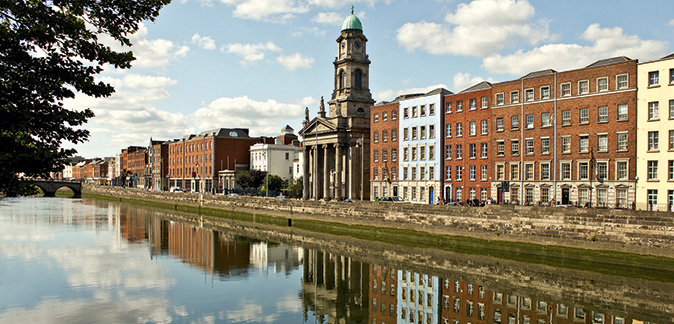
The Irish capital has already seen prices go up by a sizeable 41.4% between the second quarter of 2012 and the first quarter of 2016, according to a study by Daft.ie, Ireland’s largest property website. Values now seem to have stabilised, but still remain about 40% below peak, according to Mr Goulding. ‘Given Dublin’s smaller size compared to Frankfurt, the residential market could see sizeable increases in demand.’
Carla must be the only Italian that finds the English weather more congenial than her native country’s sunshine. An antique herself, she became Country Life’s Arts & Antiques editor in 2023 having previously covered, as a freelance journalist, heritage, conservation, history and property stories, for which she won a couple of awards. Her musical taste has never evolved past Puccini and she spends most of her time immersed in any century before the 20th.

